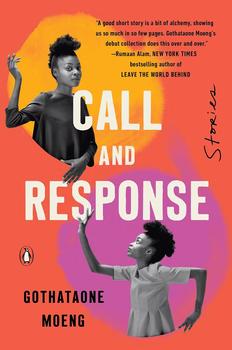Summary | Excerpt | Reading Guide | Reviews | Beyond the book | Read-Alikes | Genres & Themes | Author Bio

Eight stories—longer and more emotionally complex than any Lahiri has yet written—that take us from Cambridge and Seattle to India and Thailand as they enter the lives of sisters and brothers, fathers and mothers, daughters and sons, friends and lovers.
From the internationally best-selling, Pulitzer Prize–winning author, a superbly crafted new work of fiction: eight stories—longer and more emotionally complex than any she has yet written—that take us from Cambridge and Seattle to India and Thailand as they enter the lives of sisters and brothers, fathers and mothers, daughters and sons, friends and lovers.
In the stunning title story, Ruma, a young mother in a new city, is visited by her father, who carefully tends the earth of her garden, where he and his grandson form a special bond. But he’s harboring a secret from his daughter, a love affair he’s keeping all to himself. In “A Choice of Accommodations,” a husband’s attempt to turn an old friend’s wedding into a romantic getaway weekend with his wife takes a dark, revealing turn as the party lasts deep into the night. In “Only Goodness,” a sister eager to give her younger brother the perfect childhood she never had is overwhelmed by guilt, anguish, and anger when his alcoholism threatens her family. And in “Hema and Kaushik,” a trio of linked stories—a luminous, intensely compelling elegy of life, death, love, and fate—we follow the lives of a girl and boy who, one winter, share a house in Massachusetts. They travel from innocence to experience on separate, sometimes painful paths, until destiny brings them together again years later in Rome.
Unaccustomed Earth is rich with Jhumpa Lahiri’s signature gifts: exquisite prose, emotional wisdom, and subtle renderings of the most intricate workings of the heart and mind. It is a masterful, dazzling work of a writer at the peak of her powers.
Lahiri does not demand much from her readers. She does not ask that we stand back and admire her prose—no show-stopping literary antics here. She does not ask that we contend with unlikable characters. If her women make mistakes, they are well-intentioned ones, free of malice or selfishness or immaturity. She does not ask us to ride a melodramatic rollercoaster of a plot, for her stories are quiet and ordinary. Her distanced narration pads the impact of the stories, so that we read about many of the events without directly experiencing them. She simply asks that we pay attention and observe the details of her characters' worlds with as much care as she takes to portray them, trusting her to reveal their significance at the right emotional moment...continued
Full Review
(682 words)
This review is available to non-members for a limited time. For full access,
become a member today.
(Reviewed by Amy Reading).
With supreme and economical skill, Jhumpa Lahiri uses only a few cultural signifiers to situate her characters in space and time. Almost all of the mothers in her stories, the women from the older generation who emigrate from India to the United States with their husbands, wear vermilion powder in their hair. Called sindoor, this powder is applied to the part of a Hindu bride's hair by her husband during their wedding ceremony, and is thereafter worn to signify her married status. Widows typically do not wear sindoor.
In this way, the meaning of sindoor is much simpler than that of the bindi, the bright red dot that many Indian women wear on their foreheads. The bindi can be worn by women regardless of age and marital status, and thus ...
This "beyond the book" feature is available to non-members for a limited time. Join today for full access.

If you liked Unaccustomed Earth, try these:

by Gothataone Moeng
Published 2024
Richly drawn stories about the lives of ordinary families in contemporary Botswana as they navigate relationships, tradition and caretaking in a rapidly changing world.

by Sindya Bhanoo
Published 2023
These intimate stories of South Indian immigrants and the families they left behind center women's lives and ask how women both claim and surrender power - a stunning debut collection from an O. Henry Prize winner.
Talent hits a target no one else can hit; Genius hits a target no one else can see.
Click Here to find out who said this, as well as discovering other famous literary quotes!